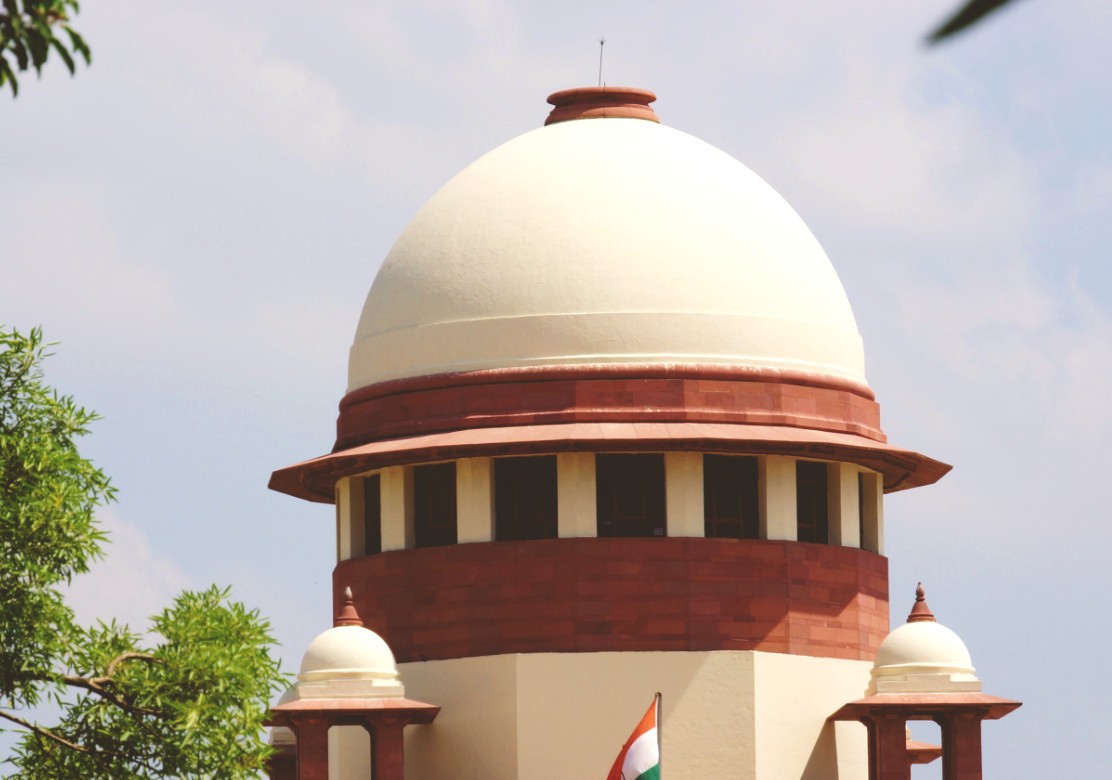Will stood proved in eyes of law once evidence was adduced in terms of Sec68 of Evidence Act & mandatory requirements prescribed u/s 63 of Succession Act were duly satisfied: Supreme Court
Justices Sanjay Karol and Sanjay Kumar [29-02-2024]

Read Order: Savitri Bai and another v. Savitri Bai[SC-CIVIL APPEAL NO. 9035 OF 2013]
Tulip Kanth
New Delhi, March 1, 2024:The Supreme Court has allowed a civil appeal pertaining to a suit for possession after considering the fact that the will in question was duly proved to be genuine. The Top Court observed that the High Court erred in overturning the orders of the lower Courts by applying its own notions and reversing their findings.
The facts of the case suggested thatLate Babulal Kahar had two wives. Savitri Bai, the first defendant, was born to him through his first wife. Suhadra Bai, the second wife, gave birth to four sons, and two daughters. When Babulal died, Suhadra Bai and her progeny were initially arrayed as respondents in this appeal but their names were deleted thereafter. They were not made parties to the suit or the first appeal. The case of Savitri Bai, the plaintiff, was that she purchased the suit property, under registered Sale Deed from Suhadra Bai, the widow of Babulal and his children. The plaintiff claimed that she was delivered possession of the suit property after execution of the sale deed but the first defendant dispossessed her and took forcible possession thereof. She further claimed that the first defendant failed to handover vacant possession despite receiving notices.
She then filed the subject suit for possession of the suit property. After receiving the plaintiff’s notices, she claimed that she clarified that she had not sold the suit property and was assured by the plaintiff’s husband that he would take back the consideration from the others and leave her property. The Civil Suit was dismissed by the Additional Civil Judge and the same stood confirmed in appeal by the First Additional District Judge. However, Second Appeal filed by the plaintiff was allowed by the High Court of Madhya Pradesh and the plaintiff was declared the owner of the suit house property under the registered Sale Deed. Further, the High Court declared the Will executed in favour of the second defendant as null and void. Aggrieved thereby, the defendants in the suit filed the appeal before the Top Court.
The Division Bench of Justice Sanjay Karol and Justice Sanjay Kumarnoted that the High Court glossed over this Will, entertaining a doubt as to its genuineness, only on the ground that it was not produced earlier and as the first defendant had affixed her signature in the Sale Deed. The knowledge imputed by the High Court to the first defendant in relation to the said sale deed was not warranted as it was her specific case that she had affixed her signature in not only this sale deed but all the other sale deeds executed by her step-mother and the others, being under the impression that the same was required as she was also the daughter of late Babulal.
Therefore, the Bench observed that no conscious knowledge could be attributed to her only in relation to the Sale Deed and her not speaking of or producing the Will at that time could not be held against her, as she was under the impression that she was participating in the sale of her family’s share in the properties, by way of abundant caution. It was also noticed that the question of her raising the issue of the Will did not even arise.
The Bench highlighted the fact that the High Court failed to appreciate the independent evidence adduced to prove the said Will. The scribe of the Will was an Advocate. Deposing as PW3, he asserted that he had written the same upon the instructions of late Babulal. He stated that it was read over to late Babulal and thereafter, the witnesses and late Babulal affixed their signatures therein.
“The depositions of the attestors of the Will also remained unshaken and clearly evidenced that the same was signed by late Babulal in their presence and they, in turn, affixed their own signatures in his presence. Once such evidence was adduced in terms of Section 68 of the Evidence Act, 1872, and the mandatory requirements prescribed under Section 63 of the Indian Succession Act, 1925, were duly satisfied, the Will stood proved in the eye of law and the same ought not to have been brushed aside lightly”, the Bench held while referring to the judgment in H.Venkatachala Iyengar vs. B.N.Thimmajamma [LQ/SC/1958/142].
According to the Bench, as the Will was duly proved to be genuine, the participation of the first defendant in the execution of the Sale Deed thereafter paled into insignificance. The owner of the property under the Will was Meghraj, the second defendant, and he was neither a party to the said sale deed nor did his mother affix her signature therein in the capacity of being his guardian.
In consequence, the Bench opined that the title to the property belonging to Meghraj did not pass under the said sale deed even though his mother was a signatory thereto in her own individual capacity. “The verdicts of the Trial Court and the First Appellate Court holding so were, therefore, perfectly valid and justified and the High Court erred in overturning the same by applying its own notions and reversing their findings of fact and law”, the Bench held while allowing the appeal and restoring the judgments of the lower Courts.
Sign up for our weekly newsletter to stay up to date on our product, events featured blog, special offer and all of the exciting things that take place here at Legitquest.




Add a Comment